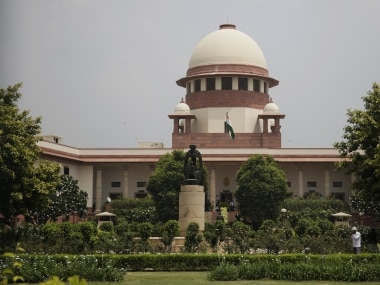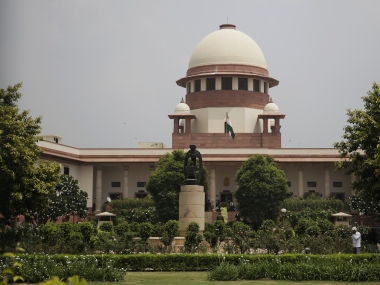The Supreme Court on Friday observed that all states are obliged to compensate victims in cases of violence by cow vigilantes. The apex court noted that law and order is ’essentially a state subject.’ “Victims are to be compensated. It is obligatory on the part of the state to compensate the victim of crime,” a bench headed by the Chief Justice Dipak Misra said. Under the Code of Criminal Procedure, the state is under obligation to have a scheme for victim compensation and if they don’t have then they should have one, it added. In the previous hearing on 6 September, the court had directed the chief secretaries of every state government to file the status report and had directed all state governments to appoint a senior police officer as a nodal officer in each district to ensure that incidents of cow vigilantism are prevented and dealt with effectively. During the hearing on Friday, Gujarat, Rajasthan, Jharkhand, Karnataka and Uttar Pradesh filed their compliance reports giving details of action taken against incidents of cow vigilantism, as reported by ANI. The apex court asked other states to file their reports soon and fixed the matter for hearing on 31 October. [caption id=“attachment_4070589” align=“alignleft” width=“380”]  File photo of Supreme Court. AP[/caption] Senior counsel Indira Jaising, appearing for one of the petitioners, had urged the apex court to order compensation to the victims of violence by the vigilante groups. He said that there should be a National Policy for the Prevention of Crime. Senior counsel Kapil Sibal, also appearing for one of the petitioners, told the court that while the perpetrators of violence in the name of protecting cows were on bail, the victims faced FIRs and persecution. The apex court was hearing a PIL filed by Tushar Gandhi, great-grandson of Mahatma Gandhi, seeking various reliefs, including a direction to all the governments to take preventive measures against cow vigilantism. In July, the Supreme Court had asked the centre and the states not to protect any kind of vigilantism and sought their response on violent incidents in the garb of cow protection. The centre had stated that it condemns any kind of vigilantism, but that law and order is a state subject and it has no role to play in the matter. “You say that law and order is a state subject and states are taking actions as per law. You don’t protect any kind of vigilantism,” the bench had asserted. Besides Gandhi, Congress leader Tehseen Poonawalla had filed a similar petition on the issue in August 2016. The top court had agreed to examine Poonawalla’s plea which sought action against cow vigilantes who were allegedly indulging in violence and committing atrocities against minorities. In his plea, Poonawalla had alleged that these groups were committing atrocities against Dalits and minorities in the name of protecting cows and other bovines and they needed to be “regulated and banned in the interest of social harmony, public morality and law and order in the country”.
“The menace caused by the so-called cow protection groups is spreading fast to every nook and corner of the country and is creating disharmony among various communities and castes,” the petition said.
The plea sought to declare as “unconstitutional” Section 12 of the Gujarat Animal Preservation Act, 1954, Section 13 of Maharashtra Animal Preservation Act, 1976, and Section 15 of Karnataka Prevention of Cow Slaughter and Cattle Preservation Act, 1964, which provide for protection of persons acting in good faith under the Act or rules. Seeking action against the vigilantes, the petition said the atrocities committed by them were punishable under various provisions of the Indian Penal Code and under the Scheduled Castes and Scheduled Tribes (Prevention of Atrocities) Act, 1989. With inputs from PTI


)




